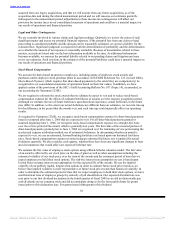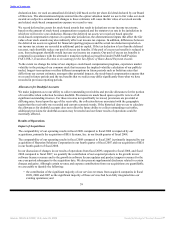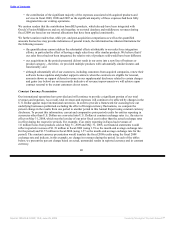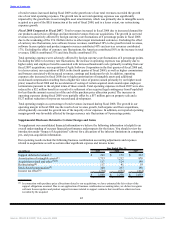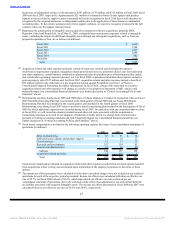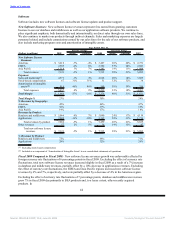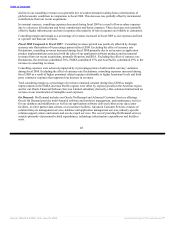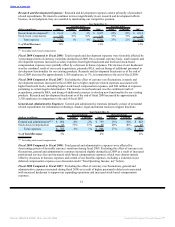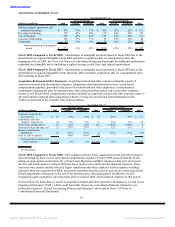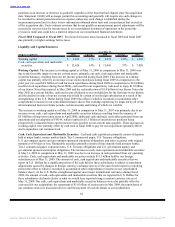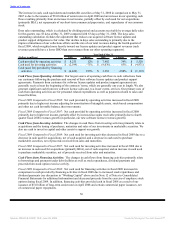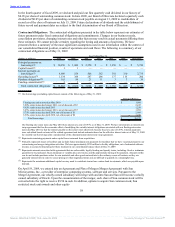Oracle 2008 Annual Report Download - page 53
Download and view the complete annual report
Please find page 53 of the 2008 Oracle annual report below. You can navigate through the pages in the report by either clicking on the pages listed below, or by using the keyword search tool below to find specific information within the annual report.
Table of Contents
decline in our consulting revenues was generally due to weaker demand resulting from a deterioration of
global economic conditions in comparison to fiscal 2008. This decrease was partially offset by incremental
contributions from our recent acquisitions.
In constant currency, consulting expenses decreased during fiscal 2009 as a result of lower salary expenses
due to a decrease in headcount and lower commissions and bonus expenses. These decreases were partially
offset by higher infrastructure and travel expenses (the majority of travel expenses are billable to customers).
Consulting margin and margin as a percentage of revenues increased in fiscal 2009 as our expenses declined
at a greater rate than our revenues.
Fiscal 2008 Compared to Fiscal 2007: Consulting revenues growth was positively affected by foreign
currency rate fluctuations of 6 percentage points in fiscal 2008. Excluding the effect of currency rate
fluctuations, consulting revenues increased during fiscal 2008 primarily due to an increase in application
product implementations associated with the sales of our application software products and incremental
revenues from our recent acquisitions, primarily Hyperion and BEA. Excluding the effect of currency rate
fluctuations, the Americas contributed 36%, EMEA contributed 35% and Asia Pacific contributed 29% to the
increase in consulting revenues.
Consulting expenses were adversely impacted by 6 percentage points of unfavorable currency variations
during fiscal 2008. Excluding the effect of currency rate fluctuations, consulting expenses increased during
fiscal 2008 as a result of higher personnel related expenses attributable to higher headcount levels and third
party contractor expenses that supported our increase in revenues.
Total consulting margin as a percentage of revenues remained constant during fiscal 2008 as margin
improvements in the EMEA and Asia Pacific regions were offset by expense growth in the Americas region
and for our Oracle Financial Software Services Limited subsidiary (formerly, i-flex solutions limited) and an
increase in our amortization of intangible asset expenses.
On Demand: On Demand includes our Oracle On Demand and Advanced Customer Services offerings.
Oracle On Demand provides multi-featured software and hardware management, and maintenance services
for our database and middleware as well as our applications software delivered either at our data center
facilities, at select partner data centers, or at customer facilities. Advanced Customer Services consists of
solution lifecycle management services, database and application management services, industry-specific
solution support centers and remote and on-site expert services. The cost of providing On Demand services
consists primarily of personnel related expenditures, technology infrastructure expenditures and facilities
costs.
48
Source: ORACLE CORP, 10-K, June 29, 2009 Powered by Morningstar® Document Research℠


